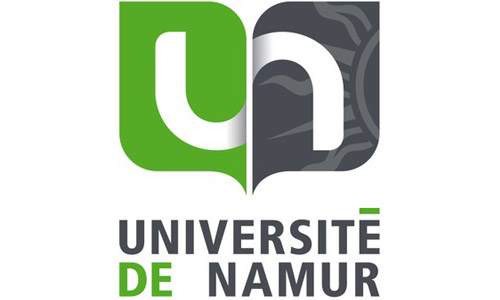
Belgium www.unamur.be/en - www.crids.eu
The Research Centre on Information, Law and Society (CRIDS) at the University of Namur brings together more than forty senior and junior researchers to address questions relating to information systems and technological choices that match the ethical requirements of a human life. This includes a large scope of issues, from the protection of digital consumers or patients to the privacy protection, from new modes of governance to the production of common cultural goods, from electronic communication law to identity issues raised systems of profiling and personalization.
The mission statement of CRIDS is to lead applied and fundamental research with a critical stance and pay permanent care to democratic and human values. CRIDS is and has been involved in several FP6 and FP7 projects. It is in charge of many national and regional R&D projects and has been awarded by the Belgian Science Policy Office for the quality of its research.
The CRIDS – University of Namur will mainly work on the legal and ethical issues raised by the project. Indeed, such a project using ICTs and biometric measures has to manage legal and ethical challenges and CRIDs will be in charge of these challenges thanks to its background. Besides this, CRIDS will collaborate to the dissemination of the results through articles, papers and conferences organised by itself or others.
CRIDS will also collaborate to the exploitation through its educational competencies. CRIDS has a long background in data protection and is well known in this field of competencies. It also possesses an important knowledge in ethical and social acceptability.
These two aspects are needed in this project as it has to be compliant with the data protection legislation from the beginning (privacy by design) and needs to meet the parameter of social acceptability which is a condition for the viability of this project.
To ensure those two aspects, UNamur will lead the WP3 devoted to analyse data privacy and ethics related to the TeSLA project and define the restrictions and guidelines. In addition, will participate for supervising the correct application of such aspects in the development process (WP6 and WP7), the pilots (WP8) and in the exploitation (WP9)

University of Namur (Belgium) – Computer Sciences Faculty & Research Centre Law, Information & Society (CRIDS)
FUNDED BY THE EUROPEAN UNION
TeSLA is not responsible for any contents linked or referred to from these pages. It does not associate or identify itself with the content of third parties to which it refers via a link. Furthermore TESLA is not liable for any postings or messages published by users of discussion boards, guest books or mailing lists provided on its page. We have no control over the nature, content and availability of any links that may appear on our site. The inclusion of any links does not necessarily imply a recommendation or endorse the views expressed within them.
TeSLA is coordinated by Universitat Oberta de Catalunya (UOC) and funded by the European Commission’s Horizon 2020 ICT Programme. This website reflects the views only of the authors, and the Commission cannot be held responsible for any use which may be made of the information contained therein.